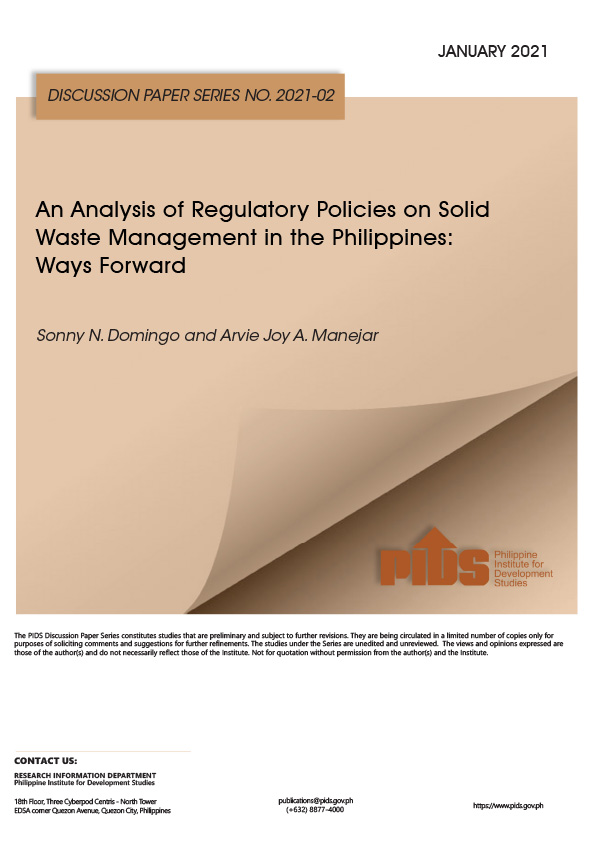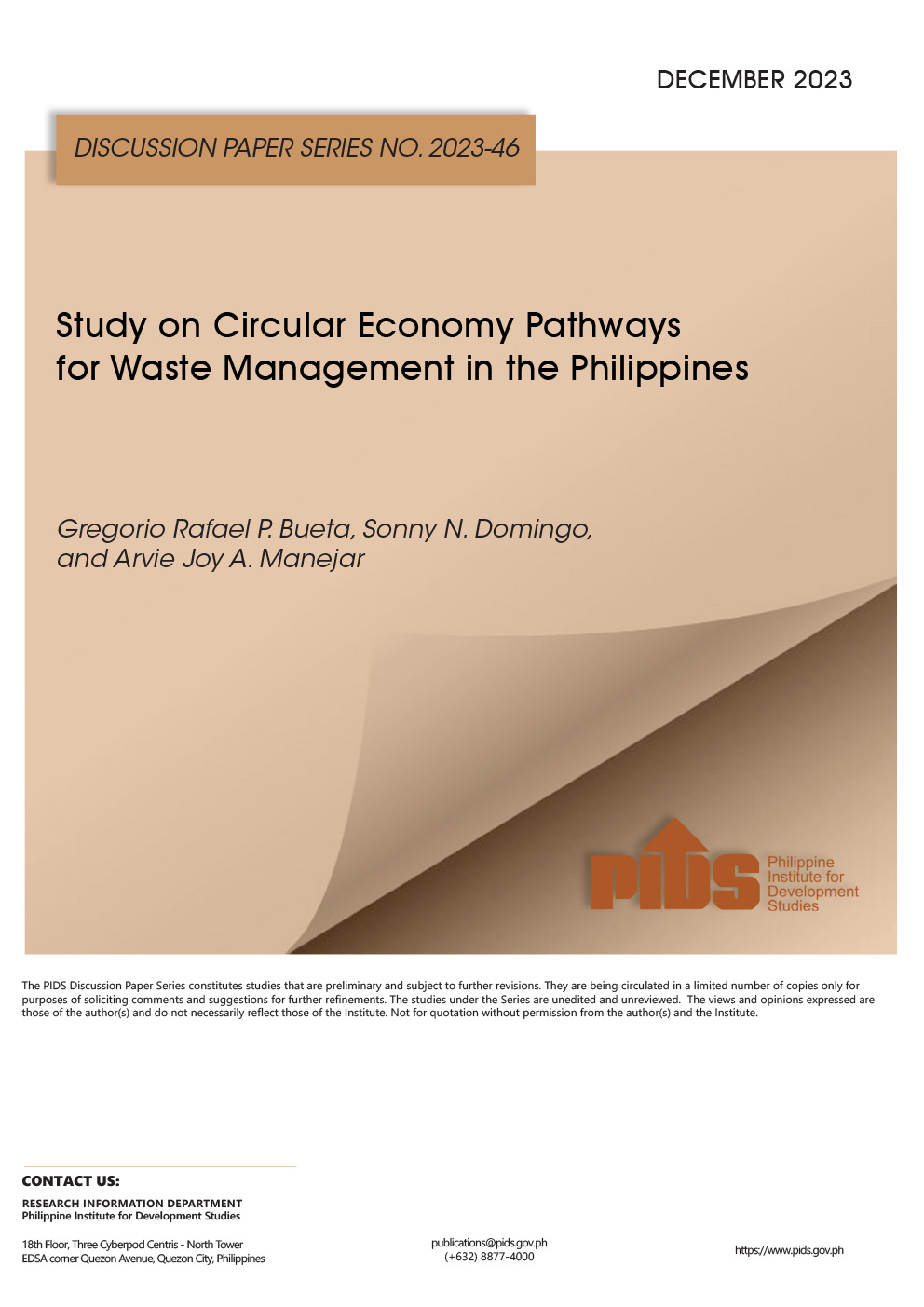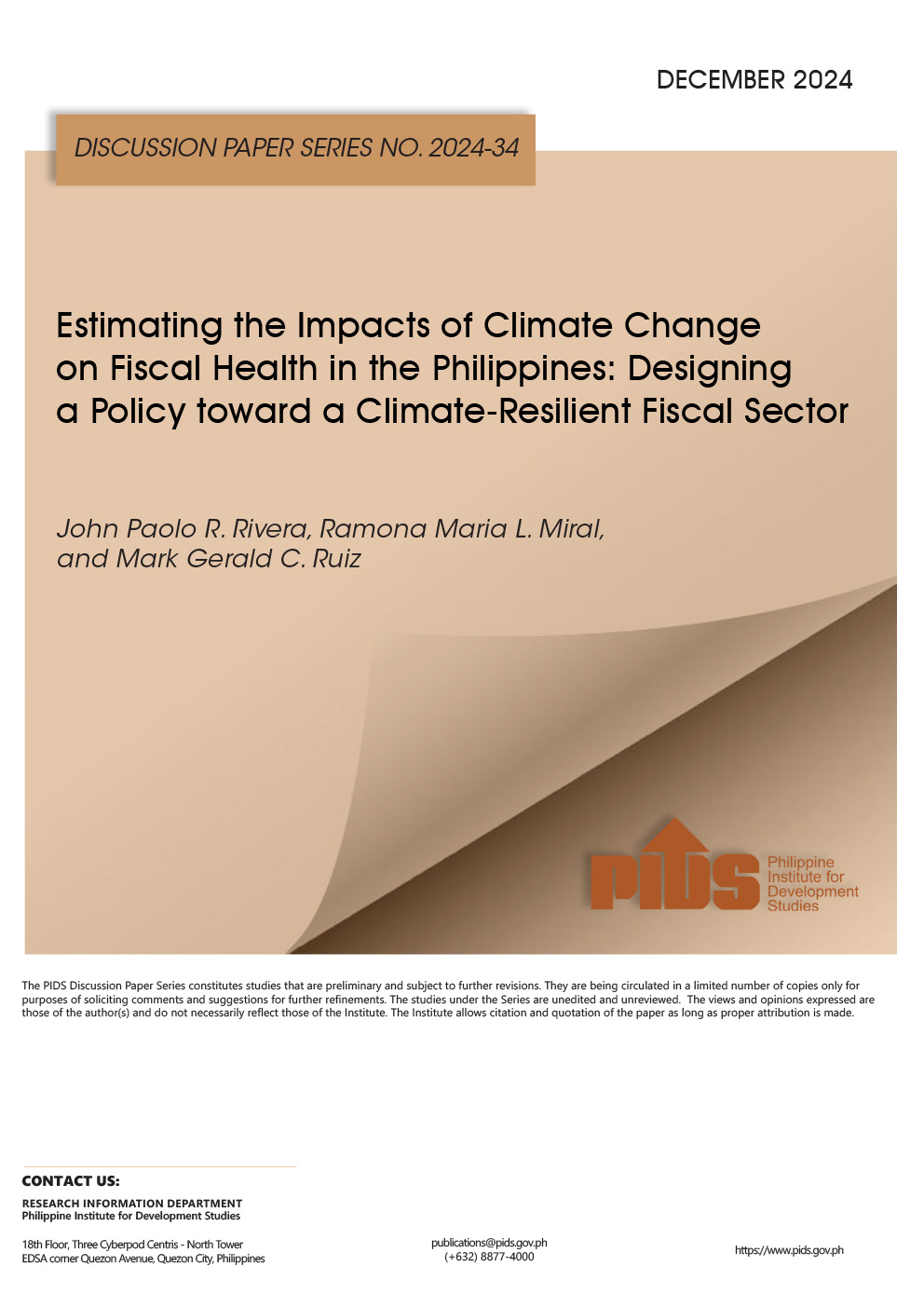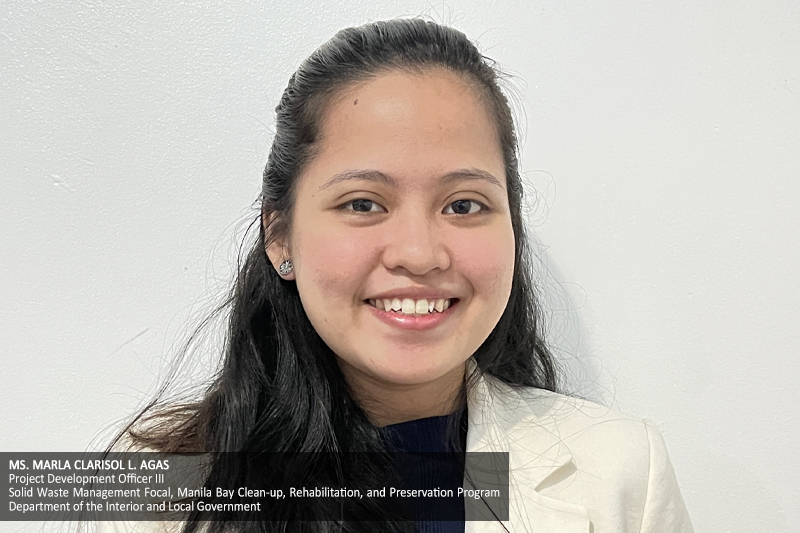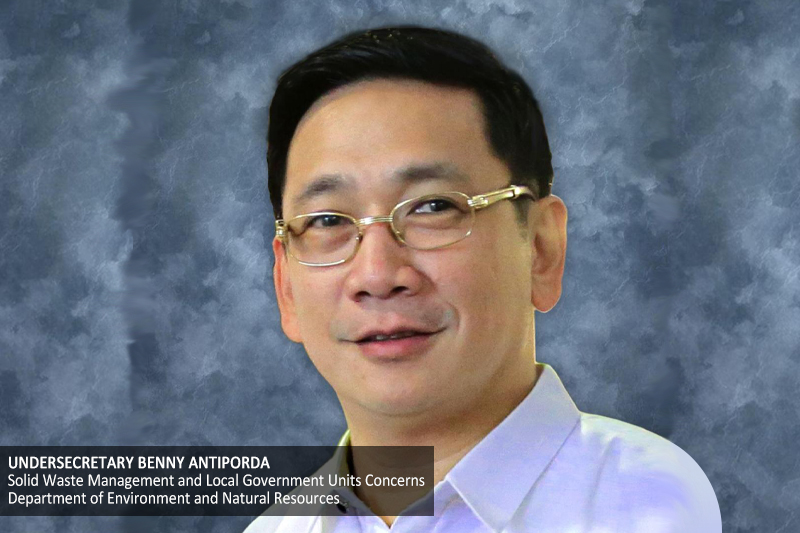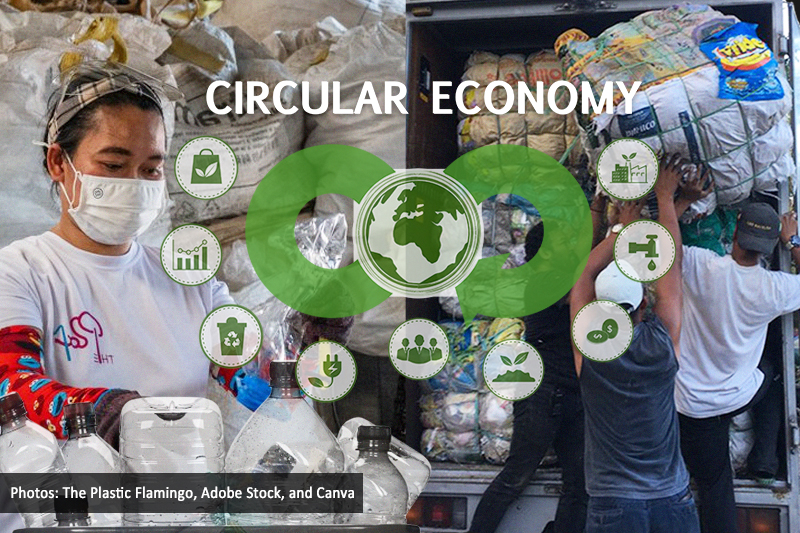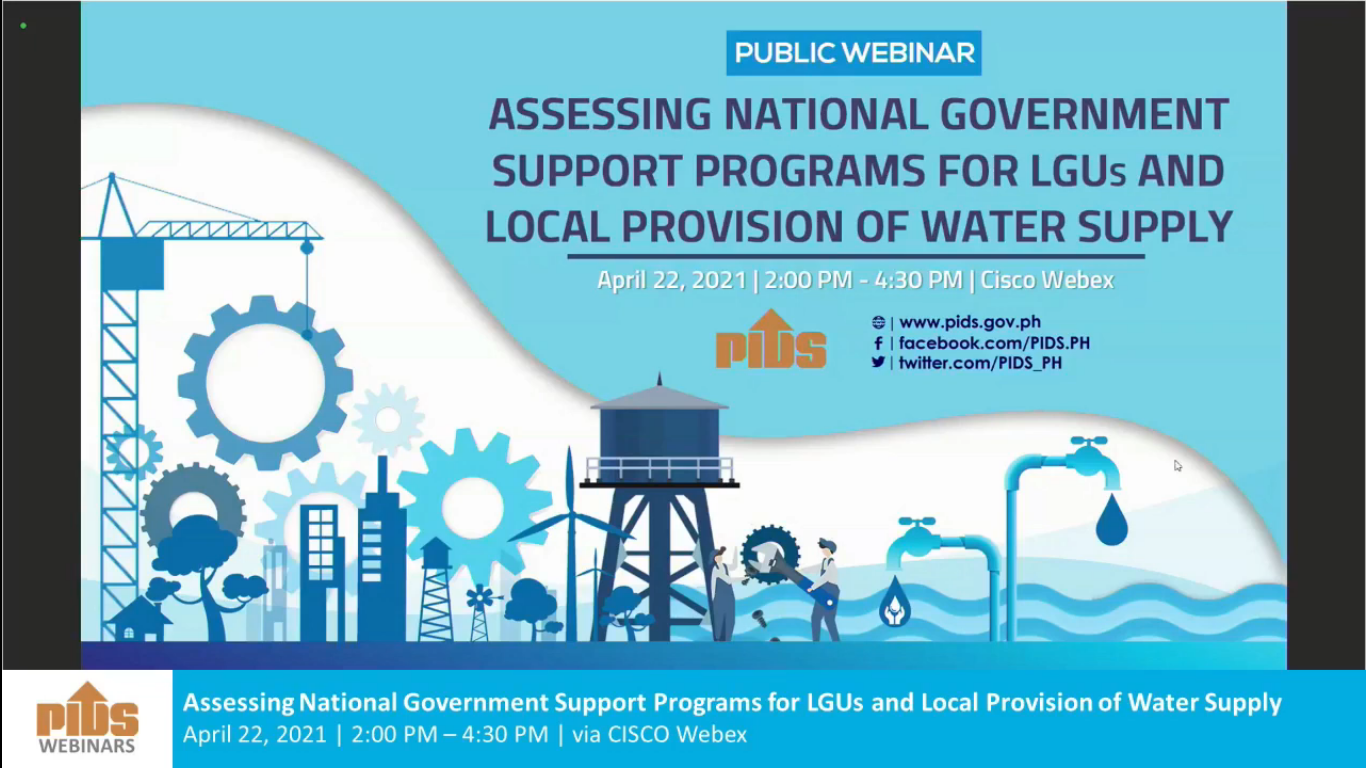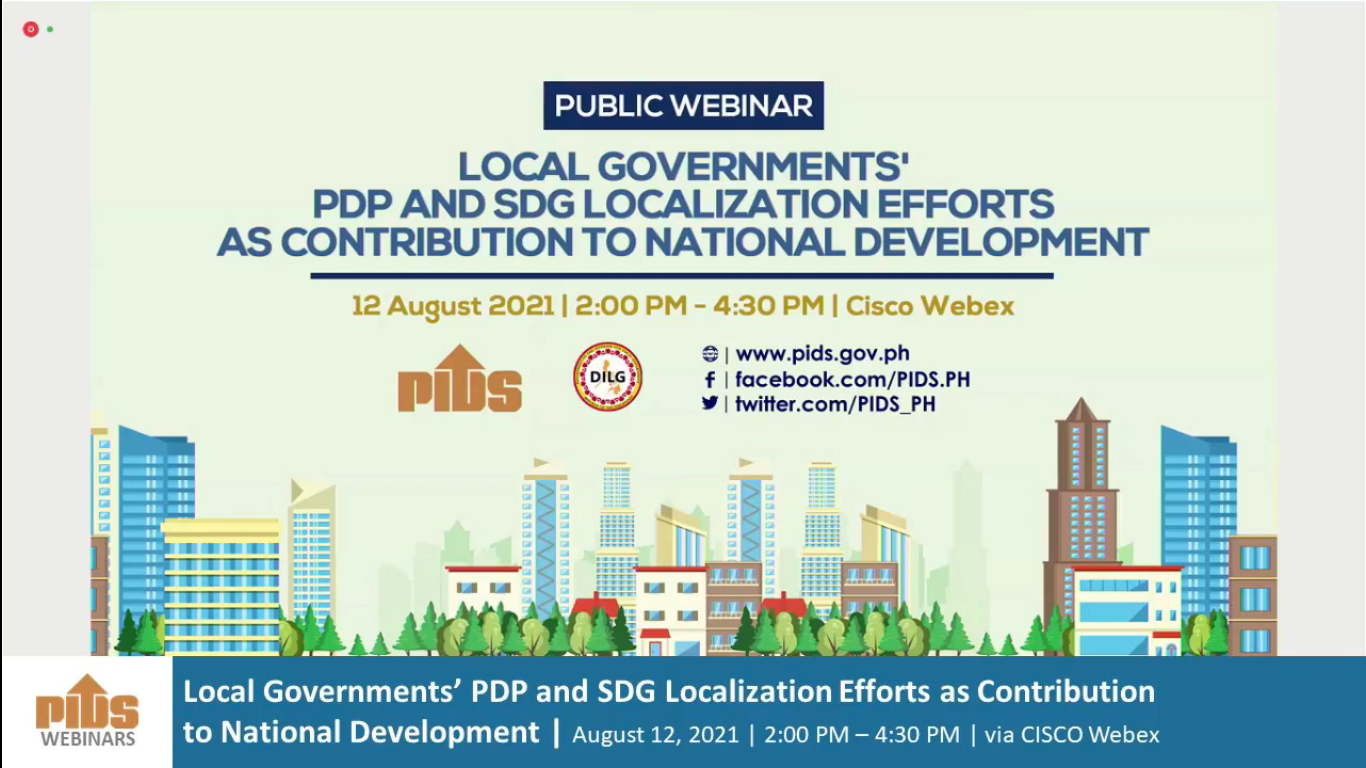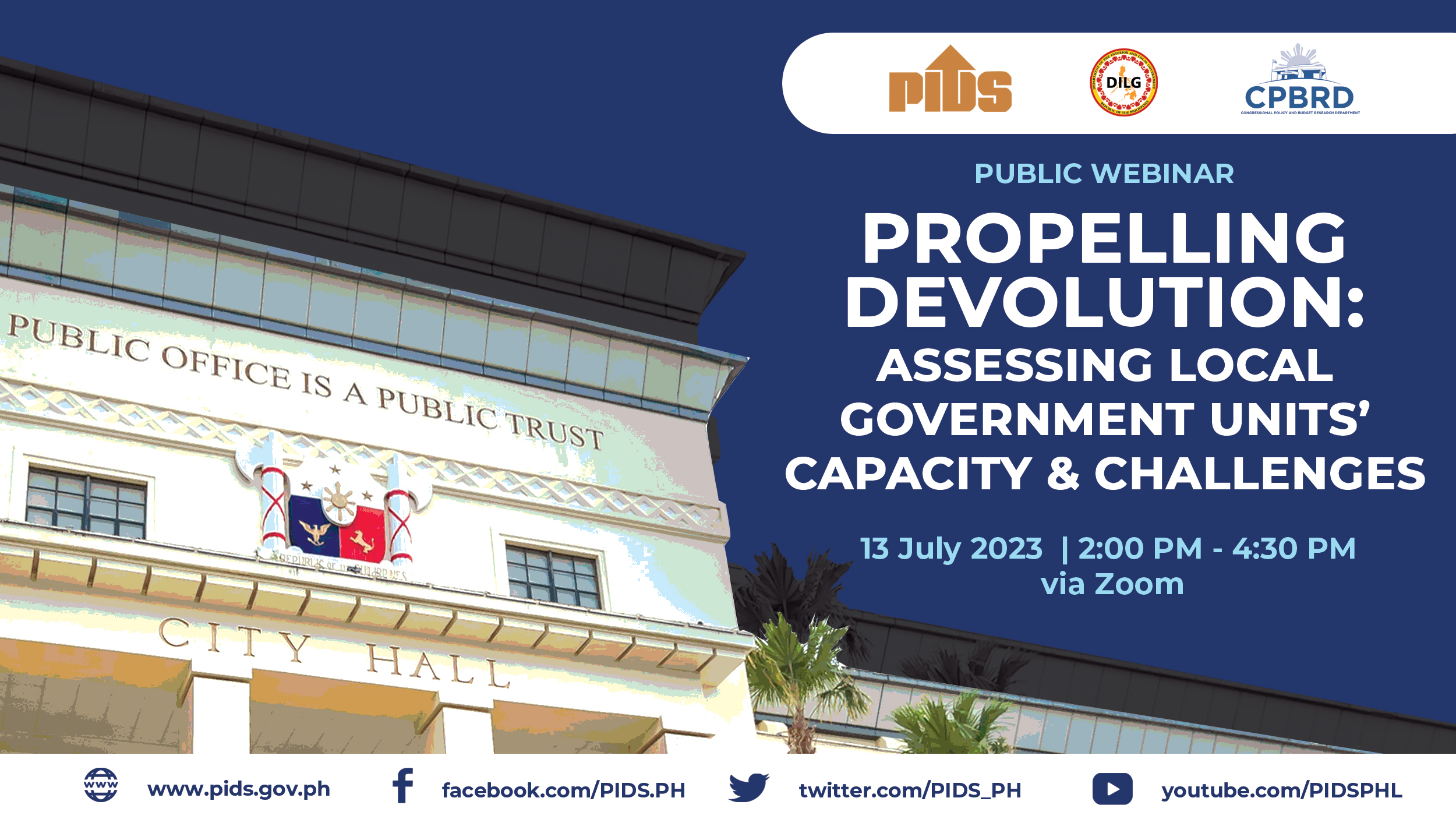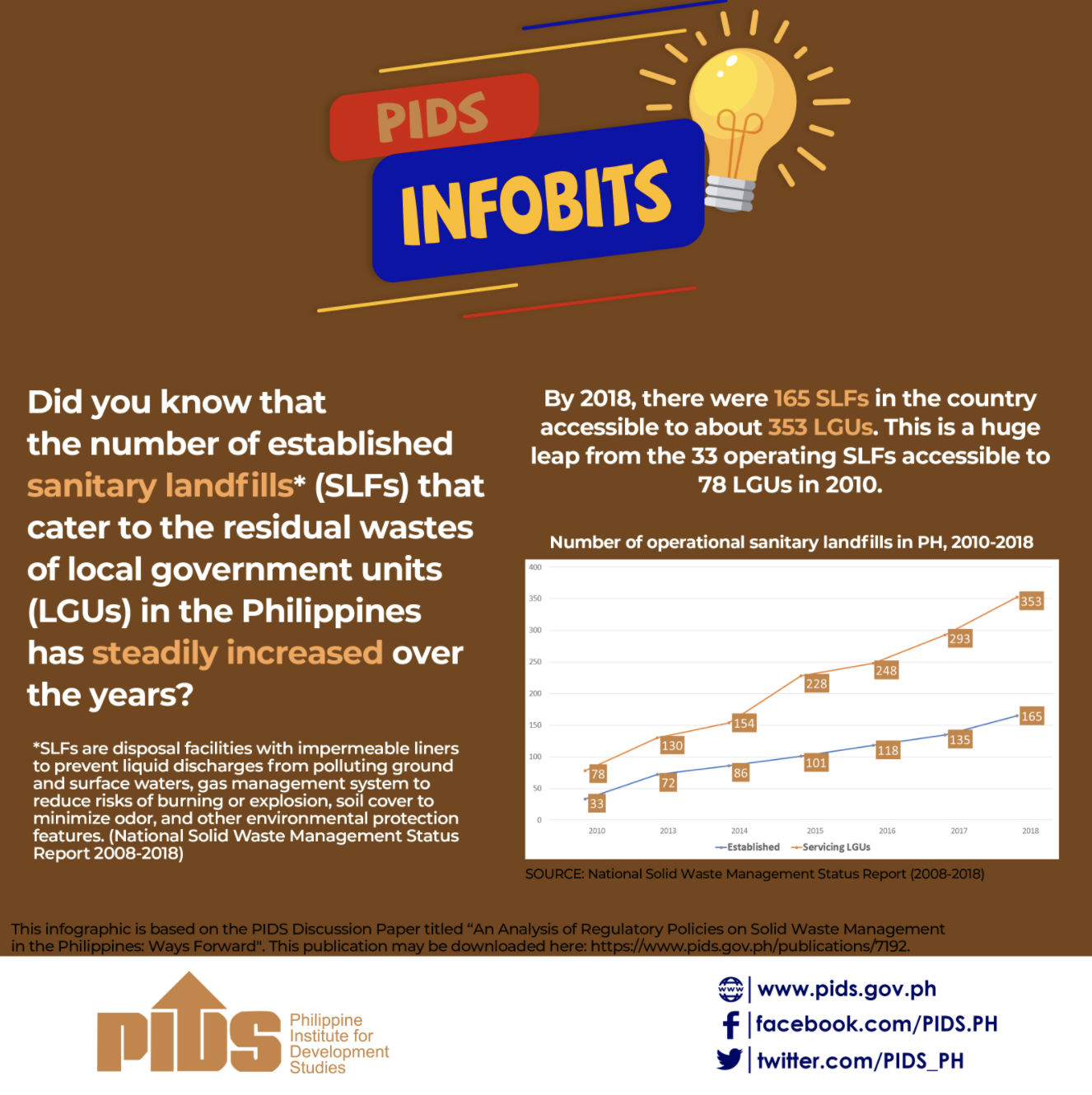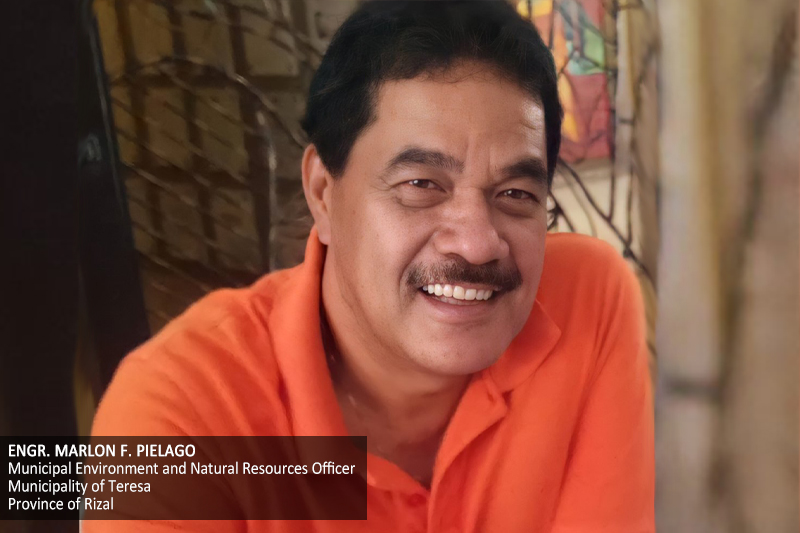
Local government units (LGUs) must be consistent and persistent in implementing the Ecological Solid Waste Management Act of 2000 or Republic Act 9003.
Engr. Marlon Pielago, municipal environment and natural resource officer of Teresa, Rizal, emphasized this at a webinar recently organized by state think tank Philippine Institute for Development Studies (PIDS).
Pielago, a discussant at the webinar, noted that some LGUs fail to implement the law because they do not have a focal person handling their solid waste management (SWM) programs.
“In my 15 years of being involved in this program, I have seen how everybody tried but failed. Why? Because there was no one to lead and who knew the intricacies of the law,” Pielago said.
He stressed the importance of equipping focal persons so they can understand and properly implement the SWM law. “Everybody thinks they know [what the SWM law is all about] yet [they cannot] define what ‘waste’ is,” he said.
The municipality’s best practices in SWM include the clustering of its waste management service, partnership with construction companies, and market linkages for revenue generation.
Pielago noted that Teresa’s SWM program is all about “value generation [and] moral transformation”. He pointed out that “it is not how many years it will take [to implement the law], but how stakeholders understand and [follow it].”
Teresa was able to provide jobs to people and make money out of recyclable waste materials. “Our integrated SWM facility produces construction materials, paper charcoals, pillows, cushion fillings, and coco nets, which are sold to quarry and mining operators for rehab purposes,” he said.
The Province of Rizal also partnered with cement companies wherein its collected residual wastes are provided to factories to serve as an alternative fuel under certain conditions.
According to Pielago, Teresa is required to produce at least two tons of segregated residual waste every two weeks, which are sold at PHP 1.20 per kilo or PHP 1,200 per ton.
He added that Rizal has incentive mechanisms given to LGUs exhibiting SWM best practices. Among these incentives include the provision of equipment (e.g., e-bikes, green vehicles, dump trucks), cash prizes, and the conferment of the Barangay Resilience Award.
The Municipality of Teresa has bagged several awards, including the recognition from the National Solid Waste Management Commission for being one of the best performing towns in SWM.
You may watch the webinar at https://www.facebook.com/PIDS.PH/videos/1093597981167263. For more videos of PIDS events, go to https://www.pids.gov.ph/videos.
Engr. Marlon Pielago, municipal environment and natural resource officer of Teresa, Rizal, emphasized this at a webinar recently organized by state think tank Philippine Institute for Development Studies (PIDS).
Pielago, a discussant at the webinar, noted that some LGUs fail to implement the law because they do not have a focal person handling their solid waste management (SWM) programs.
“In my 15 years of being involved in this program, I have seen how everybody tried but failed. Why? Because there was no one to lead and who knew the intricacies of the law,” Pielago said.
He stressed the importance of equipping focal persons so they can understand and properly implement the SWM law. “Everybody thinks they know [what the SWM law is all about] yet [they cannot] define what ‘waste’ is,” he said.
The municipality’s best practices in SWM include the clustering of its waste management service, partnership with construction companies, and market linkages for revenue generation.
Pielago noted that Teresa’s SWM program is all about “value generation [and] moral transformation”. He pointed out that “it is not how many years it will take [to implement the law], but how stakeholders understand and [follow it].”
Teresa was able to provide jobs to people and make money out of recyclable waste materials. “Our integrated SWM facility produces construction materials, paper charcoals, pillows, cushion fillings, and coco nets, which are sold to quarry and mining operators for rehab purposes,” he said.
The Province of Rizal also partnered with cement companies wherein its collected residual wastes are provided to factories to serve as an alternative fuel under certain conditions.
According to Pielago, Teresa is required to produce at least two tons of segregated residual waste every two weeks, which are sold at PHP 1.20 per kilo or PHP 1,200 per ton.
He added that Rizal has incentive mechanisms given to LGUs exhibiting SWM best practices. Among these incentives include the provision of equipment (e.g., e-bikes, green vehicles, dump trucks), cash prizes, and the conferment of the Barangay Resilience Award.
The Municipality of Teresa has bagged several awards, including the recognition from the National Solid Waste Management Commission for being one of the best performing towns in SWM.
You may watch the webinar at https://www.facebook.com/PIDS.PH/videos/1093597981167263. For more videos of PIDS events, go to https://www.pids.gov.ph/videos.

